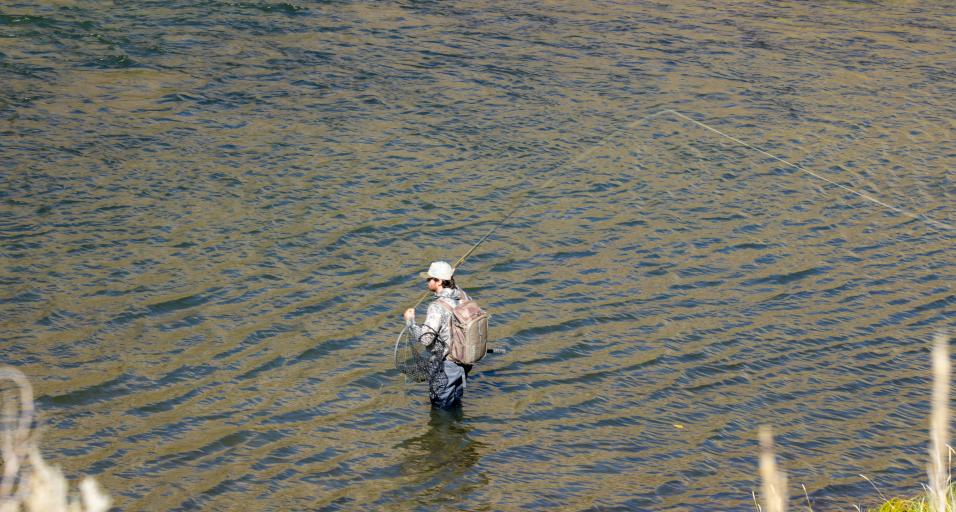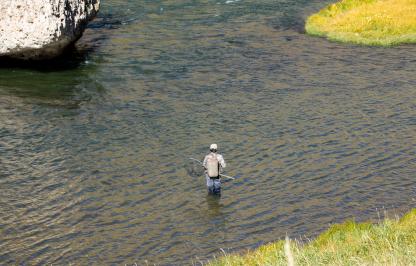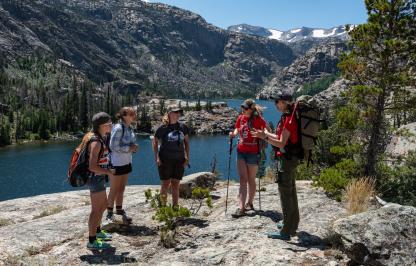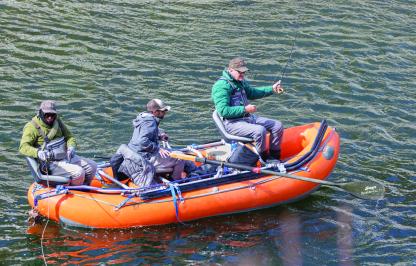Due to increasing air temperatures across Wyoming, some of the state’s streams and rivers are flowing at warmer temperatures. The Wyoming Game and Fish Department is asking anglers to adjust fishing practices during the state’s hottest stretch of summer. Warmer water temperatures can affect fish survival, especially Wyoming’s trout.
“It’s that time of year when water temperatures are highest. Warmer surface temperatures have the potential to be lethal to trout,” said Alan Osterland, Game and Fish fish division chief. “Warm water also holds less oxygen which can stress not only trout, but also all fish.”
Trout die after prolonged exposure to water temperatures greater than 75 degrees Fahrenheit, and brief exposure to temperatures over 80 degrees are lethal. Fish stress quicker in low-oxygen warm water, which greatly hampers a fish's ability to recover from the rigors of being caught. However, as water temperatures approach 70 degrees the chance for any fish species to survive being caught and released is reduced.
Anglers who adjust their practices can help more fish survive the heat.
“As water temperatures increase, anglers should monitor water temps while fishing. When water temperatures hit 70 degrees, we recommend anglers stop catching and releasing fish,” Osterland said. “Practice self-restraint to help fish survive.”
Game and Fish asks all anglers practicing catch-and-release to consider the following:
- Fish early in the morning while the water temperature is cooler.
- Carry a pocket thermometer to monitor the water temperature.
- If the water temperature is at or above 65 degrees, consider keeping what you catch within the regulations. If the temperature is 70 degrees or higher, do not attempt to catch and release fish.
As water temperature increases, using the proper techniques to catch and release a fish becomes increasingly important to help ensure the fish has a chance to survive:
- Play and land fish as rapidly as possible to reduce exhaustion stress.
- Keep the fish in the water as much as possible.
- Do not squeeze the fish or place fingers in the gills.
- Remove the hook gently. If hooked deeply, cut the leader.
- Flies and lures are recommended whenever many fish are being caught and released.
- Barbless hooks allow easier hook removal.
- If a fish is exhausted and cannot hold itself upright, and if regulations allow, consider having it for supper because the fish has a poor chance of surviving.
“These are not new regulations, just recommendations to assist with the conservation of the fishery resource,” Osterland said. “If water temperatures are too high, consider escaping the heat with a trip to another top-notch, high-country fishery where it’s cooler.”




